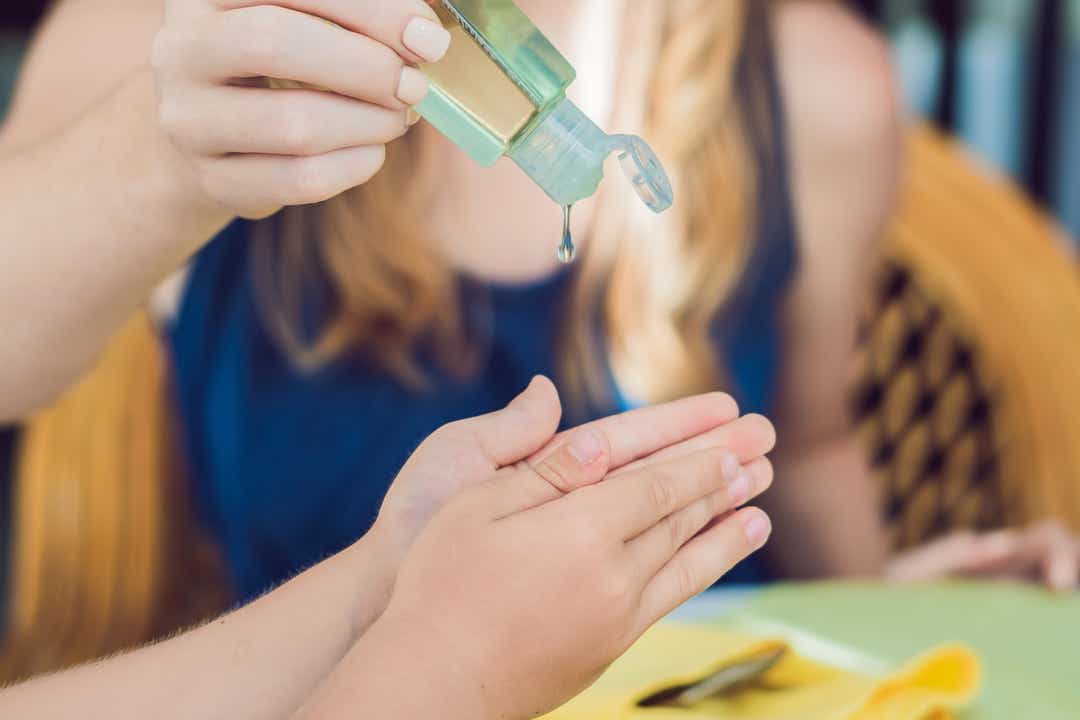The claim: Hand sanitizer has the same ingredients as antifreeze and can be fatal to pets if they lick your hand
As the novel coronavirus continues to spread, health officials have encouraged the members of the public to practice good hygiene by washing their hands frequently, or by using hand sanitizer with at least 60% alcohol if soap and water is unavailable.
But a Facebook post on Saturday told pet owners that hand sanitizer can prove harmful to their animals because it “has the same ingredients as antifreeze.”
“Don’t let animals lick it off your hands,” the post said. “It can kill.”
Over the last several days, more than 500,000 Facebook users have shared the post.
USA TODAY reached out to the user who posted the message, Judith Ann Davis, for comment but did not receive a response.

What’s in hand sanitizer?
The most commonly used active ingredients in hand sanitizer are ethyl alcohol, or ethanol; isopropyl alcohol, which is found in rubbing alcohol; and benzalkonium chloride, which is commonly used in alcohol-free sanitizers. According to the Food and Drug Administration, about 97% of over-the-counter hand sanitizers use one of these three active ingredients.
Ethyl alcohol is the most common of the three ingredients and is the same ethanol found in beer and wine.
The main ingredients of antifreeze are much different. Radiator antifreeze includes either ethylene glycol, which is toxic to humans, or propylene glycol, a compound that is much less toxic and even considered safe in certain amounts. Some foods, medications and cosmetics contain propylene glycol.
Dr. Josh King, medical director at the Maryland Poison Center, said it's possible the Facebook post confused ethyl alcohol with ethylene glycol, but antifreeze and hand sanitizer do not contain the same ingredients.
"Ethylene glycol is very toxic if someone were to ingest it," King said. "But that is not in hand sanitizers. They don't contain what we call toxic alcohols."
King said he had not heard of hand sanitizer including propylene glycol, but if one did, it would likely not be enough to be harmful.
How does hand sanitizer affect pets?
While hand sanitizer doesn't contain harmful ingredients found in antifreeze, it still can cause negative effects if people consume too much of it.
Dr. Ed Bottei, medical director at the Iowa Poison Control Center, said the center does receive calls for people drinking sanitizer. They often fall into two categories: children who get into their parents' hand sanitizer, and people who are drinking it purposefully for the alcohol content.
Ethyl alcohol in hand sanitizer can cause the same issues as drinking too much of an alcoholic beverage, he said. Hand sanitizer commonly ranges from 60-70% alcohol, which is the equivalent of 120-proof to 140-proof alcohol, Bottei said.
But Bottei said a pet that licks a hand that’s still slightly wet with sanitizer wouldn’t ingest nearly enough of it to cause side effects.
"The amount that they lick off your hand — even if you rubbed it in and they slobber all over your hand and lick everything off that's left there — is not going to hurt them," he said. "It's not going to make them drunk, and it sure isn't going to kill them."
Dr. Tina Wismer, senior director of the animal poison control center at the American Society for the Prevention of Cruelty to Animals, agreed. But she said she does recommend pet owners hold off on physical contact with their pets until their hands are completely dry from using hand sanitizer.
Since hand sanitizer has a bittering agent, pets may react to the bad taste by drooling, she said.
“Once it has evaporated, it is safe to touch your pets,” she said in an email.
Our ruling: False
To claim that hand sanitizer “has the same ingredients as antifreeze” is incorrect. Neither ethylene glycol nor propylene glycol are main ingredients in hand sanitizer. And even if propylene glycol were included as an additive, it is not nearly as harmful in certain amounts.
It's also incorrect that hand sanitizer poses a danger to pets who lick their owner's hand. While ethyl alcohol, the main ingredient in most hand sanitizers, can cause issues similar to drinking too much alcohol when consumed in larger amounts, poison control experts contacted by USA Today agree that it's not nearly enough to hurt an animal, although it would likely taste bitter to them.
So if Fido gives you a lick after you sanitize, he might make a face, but he'll be just fine.
Our fact-check sources:
- Centers for Disease Control and Prevention: Recommendations for hand sanitizer use.
- Food and Drug Administration: Hand sanitizers may be a good alternative if soap and water are not available.
- Georgia Poison Control Center: Information on alcohol poisoning from drinking hand sanitizer.
- Centers for Disease Control and Prevention: Information on ethylene glycol.
- Agency for Toxic Substances & Disease Registry: Information on propylene glycol.
Ian Richardson covers the Iowa Statehouse for the Des Moines Register. Reach him at irichardson@registermedia.com, at 515-284-8254, or on Twitter at @DMRIanR.
Your subscription makes work like this possible. Subscribe today at DesMoinesRegister.com/Deal.
"ingredients" - Google News
March 20, 2020 at 07:53PM
https://ift.tt/2U4rh7O
Fact check: No, hand sanitizer won't harm your pets if they lick your hand after you use it - USA TODAY
"ingredients" - Google News
https://ift.tt/2Qstat1
Shoes Man Tutorial
Pos News Update
Meme Update
Korean Entertainment News
Japan News Update
Bagikan Berita Ini














0 Response to "Fact check: No, hand sanitizer won't harm your pets if they lick your hand after you use it - USA TODAY"
Post a Comment